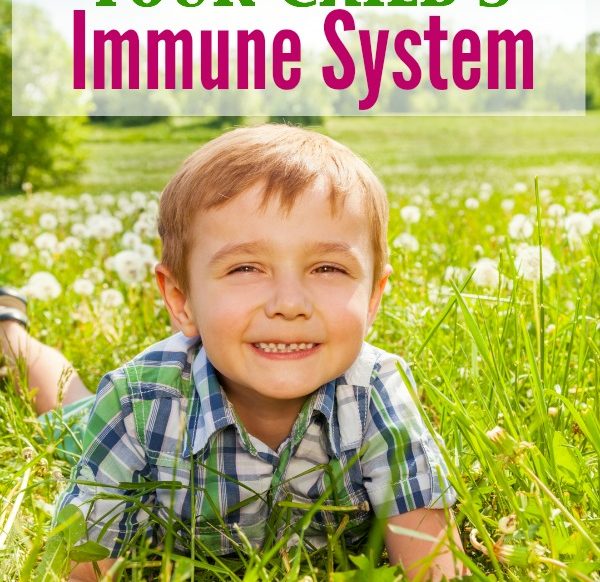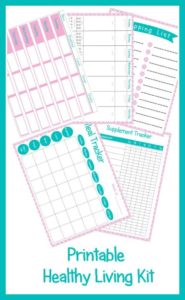Pumpkin Recipes Made with Real Food Ingredients
I cooked up a bunch of pumpkin over the weekend, and I knew I needed to check with some of my favorite healthy living bloggers to see what they had in the way of real food pumpkin recipes. Once again, they did not disappoint!
Here are some of the links they gave me:
Beverages:
 Real Food Pumpkin Spice Latte
Real Food Pumpkin Spice Latte
 Superfood Pumpkin Pie Smoothie
Superfood Pumpkin Pie Smoothie
Breakfast:
 Gluten Free Pumpkin Pancakes
Gluten Free Pumpkin Pancakes
Grain Free Pumpkin Chocolate Chip Muffins
Main Dishes:
 3 Healthy Main Dish Pumpkin Recipes
3 Healthy Main Dish Pumpkin Recipes
(Crab and Pumpkin Quiche, Stuffed Pumpkin or Acorn Squash, Autumn Stuffed Pumpkin)
 Pumpkin Soup Recipes
Pumpkin Soup Recipes
(Roasted Pumpkin and Butternut Squash Soup, Apple Pumpkin Bisque, Autumn Pumpkin Stew)
Snacks:
 Sourdough Pumpkin Bread
Sourdough Pumpkin Bread
 Healthy Pumpkin Pie Quinoa Recipe
Healthy Pumpkin Pie Quinoa Recipe
Desserts:
 Pumpkies (GF, DF, EF, NF)
Pumpkies (GF, DF, EF, NF)
 Pumpkin Snickerdoodles
Pumpkin Snickerdoodles
 Dairy Free Pumpkin Pie Panna Cotta
Dairy Free Pumpkin Pie Panna Cotta
 Gluten Free Pumpkin Cake with Cream Cheese Frosting
Gluten Free Pumpkin Cake with Cream Cheese Frosting
 Pumpkin Pie Mini Tarts (Gluten Free)
Pumpkin Pie Mini Tarts (Gluten Free)
 Pumpkin Chocolate Chip Cookies
Pumpkin Chocolate Chip Cookies
I'm pretty sure I'm going after those Pumpkies first! Which recipe are you going to try?
(If you missed the apple recipes, you can check those out here.)
13 Amazing (Real Food) Apple Recipes
It's apple season! I just got myself a bushel of apples over the weekend, and no doubt I'll be getting more before the season is over. I normally just use most of them to make applesauce (using this handy little applesauce grinder – one of my favorite kitchen tools ever!)
But I thought it would be nice to do something a little more interesting with the apples. I'm not the greatest at coming up with recipes. (When I do it's monumental, and they definitely turn into a blog post!)
But even if I'm not that great at creating recipes, I know exactly where to look to find them!
I simply ask around to my blogging colleagues, and they never fail me! Their stunning photography and their knack for creating amazing food from real, whole ingredients is just delightful!
Here are some of my top picks of their apple recipes:
Main Dishes

Pork, Apples, and Brussels Sprouts Skillet
Side Dishes
Sweet Potato, Bacon, and Apple Hash
Breakfast
Awesome Apple Cinnamon Pancakes (gluten free)
Snacks

Gluten Free Applesauce Oat Bars
Desserts
Gluten free Apple Raspberry Pie
I'm not sure which one to try first! Which one looks the best to you?
The No-Coupon Way To Save Big On Your Grocery Bill
If you've been a long-time reader, or if you've done a bit of poking around on my site, you may know that I used to be quite the coupon clipper. When we cut out most processed foods (we thought we weren't eating processed foods, but we were wrong! If it's in a box, bag, or can on the grocery store shelf, it's processed food.) we found that real, whole foods were costing us much more than I had been paying for all the coupon deals. The thing is, healthy food costs more when you've been used to getting stuff for pennies or even free with coupons. But it's worth it! However, as a penny-pincher, I simply can't stand spending more on anything than is absolutely necessary, so I've spent much time trying to find the best prices on things. I was so excited when I saw Shannon's new eCourse, Grocery Savings Made Simple.
Shannon also feeds her family real, whole foods, so I knew this course was not going to be based on coupon-clipping and circular comparison. In fact the course description says the following:
In this 4-week eCourse, you’ll learn how to cut your grocery budget, yet…
- Never clip a coupon
- Never look at store circulars or pay attention to sales
- Save money by cooking-from-scratch with minimal extra kitchen time
- Pay less for the healthy foods your family enjoys (no unhealthy or beans-only diets)
In each lesson, you’ll learn how to get the maximum savings with minimum effort because you’re busy and you have other things you’d rather be doing than worrying about your grocery budget.
Maximum savings with minimum effort is exactly what every homemaker wants! The course is only $37, and when you consider the fact that Shannon saved over $2000 on her grocery bill last year with this system, your $37 will pay for itself very quickly!
If you're in need of some personalized help and hand-holding with navigating through the waters of this healthy eating stuff without going broke, I recommend you give her course a try. I think you will be pleased!
5 Ways to Boost Your Child’s Immune System
As the weather changes and as people spend more time indoors together, the propensity for colds, flu, and other illnesses to spread from person to person increases. Natural remedies are wonderful when your child is sick, but boosting their immune system to try to prevent them from catching any illness in the first place is even better!
So what are some natural ways you can boost your child's immune system?
1. First of all, there is no substitute for a nutrient-dense diet. Nutritional deficiencies make your child much more susceptible to viruses and bacteria. Additionally, additives and sugar found in processed foods not only do nothing to strengthen the immune system, they actually suppress it. Keep your child off packaged food with added ingredients and cook whole foods for them. (Need help planning a healthy menu? I like using Build a Menu.)
2. Herbs – there are several herbs with immune boosting properties. I'm honestly not very knowledgeable about herbs — yet! I am working my way through the Making Herbs Simple course from Bulk Herb Store . I'm really excited about learning! I purchased some pre-made formulas and they worked so well when my little guy was sick last week!
3. Non-toxic environment – exposure to chemicals on a regular basis can damage the immune system. I try to use only natural cleaning and beauty products and we do not use antibacterial soap as it kills all bacteria, not just the bad. When any resistant bacteria emerge, there are no good bacteria to fight them.
4. Sleep – Children and adults alike need sleep in order to give their body time to regenerate cells and repair itself. If your child does not get enough sleep, his body does not have time to rebuild itself from the damage of the day and will eventually succumb to whatever bacteria or viruses are attacking his system.
5. Probiotics – probiotics are the friendly bacteria that naturally occur in the gut. One of their jobs is to protect the body from bacteria and viruses. When the balance of beneficial bacteria to unfriendly bacteria is incorrect, your child will be much more susceptible to illness. Supplementing with probiotics will help your child's body naturally protect itself. One enjoyable way for your child to consume enough probiotics is to feed them yogurt or fermented foods like sourdough. You can also get powdered probiotics to add to their food or drink. I buy mine at Vitacost. I get the Garden of Life Raw Probiotics for Kids. (Sign up through this link and you will get a coupon for $10 off your first purchase.)
6. Oral Hygiene – Oral health has an incredible impact on your overall health! To make a long story short, bacteria from improper brushing and flossing habits move into the bloodstream and create system-wide imflammation, which sets the stage for any number of illnesses. Proper dental hygiene is a must for healthy children!
(Did anybody notice that was actually 6 ways? Evidently I can't count!)
Other posts you may like:
An Affordable Alternative to Health Insurance
If you’re distressed about the rising costs of health insurance or confused by the complexities of the Affordable Care Act, you will be happy to know that there is an alternative form of health care.
Samaritan Ministries is a “Biblical, non-insurance approach to health care needs”.
Our family has been members of Samaritan Ministries for several years now, and we have been very happy with our experience.
First, let me say that one of the reasons Samaritan Ministries works well for us is that we try to keep doctor's visits to an absolute minimum. We use it for larger medical bills only. If you have ongoing medical needs which require frequent doctor's visits you may need to look for a different option.
How it works:
When you have a medical need, you state to your provider that you are “self-pay”. You negotiate with the provider for any discounts they can offer. If you need help doing this, members of Samaritan Ministries can request free help from the Karis Group.
You then submit your need to Samaritan Ministries and send them all of the bills that you received. After they review the bills and confirm that the need submitted is in accordance with their guidelines, they assign members to send their shares to you the next month. You will receive a checklist with the names of each family who will be sending a check and mark them off as each check comes in. At the end of the month you send the checklist back to Samaritan Ministries so they can confirm that the other members are paying their monthly share.
You pay the first $300 of each particular need that you share, and everything above that will be sent to you by the other members. If you have negotiated discounts with your providers, that will count toward the $300, lowering your personal out-of-pocket costs.
Pros:
It’s affordable. Our share for the entire family is $405 per month. That number remains the same regardless of how many children we have. Singles, couples without children, and single-parent families pay even less. Before we became members of Samaritan Ministries, we paid a similar amount for insurance, but that policy did not cover our children, had a high deductible, and did not cover any maternity needs.
It’s personal. When I call to submit a need, I am met with an “I’m sorry. I hope you get well soon.” When other members send their checks to us, we also receive an encouraging note.
It works. Whenever I discuss Samaritan Ministries with others, I often hear concerns that it’s too scary to trust the other members to send their checks to you. We have shared multiple needs and have never been shorted. I mentioned the checklist earlier which Samaritan Ministries uses to make sure the other members are sending their shares. If for some reason someone on your list does not send their share, that amount will be reassigned in the following month to another member. Also, I like that when I send my monthly share, I am sending it directly to another member. I know that the full amount is going directly to that person’s need. If the shares were funneled through the Samaritan Ministries office, I would have to wonder if the money was really being used for needs or if they were using part of it for their own profits. Sending the money from member to member keeps the testimony of the ministry above board.
I have freedom to choose my providers. Rather than having to choose from approved health care providers as I would with an insurance company, I am free to choose my own providers. I love being able to go where I know I will receive the best care and not have to worry about being denied coverage by insurance.
Cons:
As much as we appreciate Samaritan Ministries, there are some not-so-perfect things about it. I’ll share them here in hopes of helping you make the most informed decision about your health care coverage.
Prorating. This happens when the amount of needs submitted exceeds the amount of share money available. This has happened with one of the needs we have shared, and we received 80% of the amount of our bills rather than the full amount. 80% is still great, but when money is tight and your bill is large, it can be very disappointing to find out that the bills had to be prorated. However, if there is extra share money available the following month, the surplus will be used to help with the prorated needs. My husband just got a letter notifying him that there was some money in the pro rata fund which would be dispersed to those whose needs were prorated earlier this year.
Out of pocket costs. Since members pay the first $300 of each need they have, routine checkups and single doctor visits will be paid for out of your own pocket. That can be a drawback if you are used to frequent doctor visits that were paid for by insurance. Most optical, auditory, and dental needs are not shareable either.
Additional information:
Members of Samaritan Ministries are exempt from the individual mandate to buy health insurance. The new healthcare laws contain a provision that members of health care sharing ministries are not subject to the insurance requirement.
While most needs are shareable, there are some medical conditions that are not covered or have limited coverage. The member guidelines clearly explain which needs can and cannot be shared. Additionally, if Samaritan Ministries determines your medical need cannot be shared according to their guidelines, they may publish your medical need as a “Special Prayer Need,” where members can help you pray for God’s provision and where they are encouraged to give a small amount above their normal share to help with your need. Many times needs that cannot be shared are still met in full through the generosity of other members.
To be a member of Samaritan Ministries, you must be a professing Christian who attends church regularly. You must agree to abstain from sinful practices such as drug abuse and sexual immorality and you must be accountable to a pastor or other church leader for the needs you submit.
The maximum amount that will be shared among the members for each medical need is $250,000. Members are also eligible to participate the Save to Share ministry, where the rest of needs over $250,000 may be shared.
There are no lifetime or yearly maximum amounts eligible for sharing and there is no limit on the number of needs that an individual member or household may have.
If you want to know more, you can find FAQ’s, member testimonials, and application information on the Samaritan Ministries website. And if you decide that this is the right option for your family, I would love for you to mention our family as a referral (John and MaryEllen Bream).
If you have any additional questions you can leave them here and I'll do my best to answer them.
(Are you part of a health care sharing ministry other than Samaritan Ministries? Email me at imperfecthomemaker@gmail.com if you're willing to share about your experience in a short written interview. I would love to give the readers here a comparison of the different services available.)
Possibly Free Ultimate Healthy Living Bundle!
This year's Ultimate Healthy Living Bundle will be here in just a few weeks. It always has fantastic resources!
I know many of you have a hard time affording it, though, so I wanted to share a way you can get a bundle completely free!
Here's what to do:
1. Go here and sign up to be notified when the sale goes live.
2. When you do, you'll also receive a special referral link. Share the link with your friends, and receive the following:
- Refer 1 friend and get $5 off your bundle
- Refer 5 friends and get the 12 healthy living audio conference sessions free
- Refer 10 friends and get your bundle free!
Surely you've all got 10 friends, right?
Now what are you waiting for, go get started on that free bundle!





















